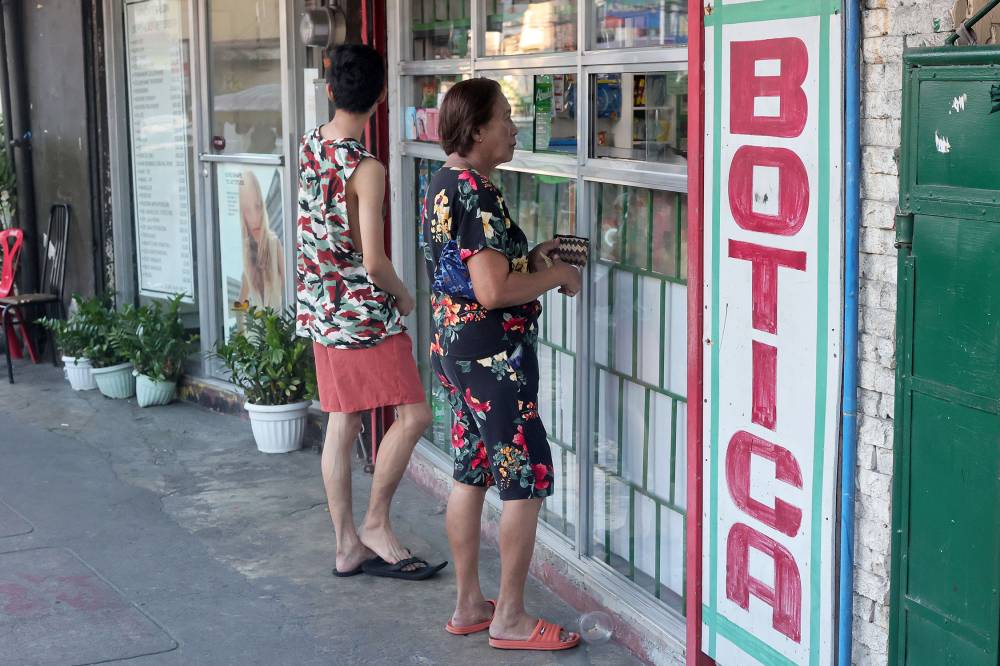Seniors can get discount on OTC drugs without prescription, FDA says

FDA CLARIFICATION Complaints about pharmacies requiring a doctor’s prescription for seniors buying over-the-counter medicines have prompted the Food and Drug Administration to issue a clarification. —GRIG C. MONTEGRANDE
Senior citizens can get their 20 percent discount on over-the-counter (OTC) medicines, vitamins, and food supplements without needing a prescription from their doctors, according to the Food and Drug Administration (FDA).
This clarification was issued in FDA Advisory No. 2024-0429, signed by FDA Director General Dr. Samuel Zacate, and aimed at drug outlets, hospital pharmacies, and healthcare professionals to prevent any misunderstandings.
According to the FDA, Administrative Order No. 2012-0007-A of the Department of Health (DOH) states that those age 60 and above are not required to get a doctor’s prescription to avail themselves of a 20-percent discount in “the purchase of OTC medicines.”
Under the DOH administrative order, medicines are defined as “prescription and nonprescription/over-the-counter drugs, both generic and branded, including vitamins and mineral supplements medically prescribed by the attending physician and approved by the [DOH and FDA], which are intended for use in the diagnosis, cure, mitigation, treatment or prevention of human disease or sickness.”
The 20-percent discount privilege for seniors is provided for under Republic Act No. 9994, or the Expanded Senior Citizens Act of 2010.Requirements
Citing the law, the FDA noted that in order to avail themselves of the discount, seniors or their representatives can present any form of identification (senior citizens ID card, passport or document) showing their birthday. They must also bring their purchase slip booklets for recording purposes (name of OTC medicine purchased, quantity, when and where it was purchased).
In an earlier radio interview, FDA spokesperson Pamela Angeline Sevilla said they had been receiving complaints from the elderly about pharmacies asking for doctors’ prescriptions when purchasing OTC drugs.
“This should not be the case, because it is clear in the law that when buying OTC items, the only documentary requirement that senior citizens need to present is their senior citizen ID or any ID proving their senior status,” she added.
The FDA instead urged pharmacies and similar establishments to assist and educate the elderly in distinguishing between prescription and OTC drugs to avoid unnecessary inconvenience.
“Let’s help our seniors instead of asking them for a prescription even if we know that the medicine they are buying is OTC and does not need one in the first place,” Sevilla said.
To determine whether a medicine is a “prescription drug (RX)” or OTC drug, the public can access verification.fda.gov.ph/ALL_DrugProductslist.php. which lists down all of the nearly 30,000 FDA-registered human medicines available.
Senior citizens can also file complaints before the Office of Senior Citizens Affairs in their respective local government units against pharmacies that do not comply with RA 9994.
The FDA warned that establishments which fail to honor the 20-percent discount on medicines for the elderly face imprisonment ranging from two to six years, plus a fine of P50,000 to P100,000 for the first offense.
Their business permit, permit to operate, franchise and other similar privileges may also be revoked by authorities.
If the offender is a corporation, partnership or company with a similar structure, its officials such as the president, general manager, managing partner or such other officer charged with managing its business affairs shall also be held liable.
If the violator is a foreigner, they shall be immediately deported after serving their prison sentence.
READ MORE: How much discount are senior citizens entitled to get?
Disclaimer: The comments uploaded on this site do not necessarily represent or reflect the views of management and owner of Cebudailynews. We reserve the right to exclude comments that we deem to be inconsistent with our editorial standards.
